The UK continues to struggle with getting a grip on small boat arrivals from France, as record numbers arrived in Britain during the first half of 2025. Prime Minister Keir Starmer is trying to shift the focus to new ways of working with Britain's counterparts in France, as French authorities are also increasing their patrols and hoping to be given additional powers to stop boats near the shore.
Close to 20,000 asylum seekers arrived in the UK on small boats in the first half of 2025, making this a record for the first half of any year, and comfortably surpassing the previous record of 13,489 arrivals set in 2024.
On June 30 alone, 879 people reached the UK's southern shores, taking the total number for the first six months of 2025 up to 19,982 — 50 percent more compared to the same period last year, according to data provided by the Home Office.
The government said that good weather conditions and new smuggler techniques had resulted in more migrants succeeding with crossing the English Channel.
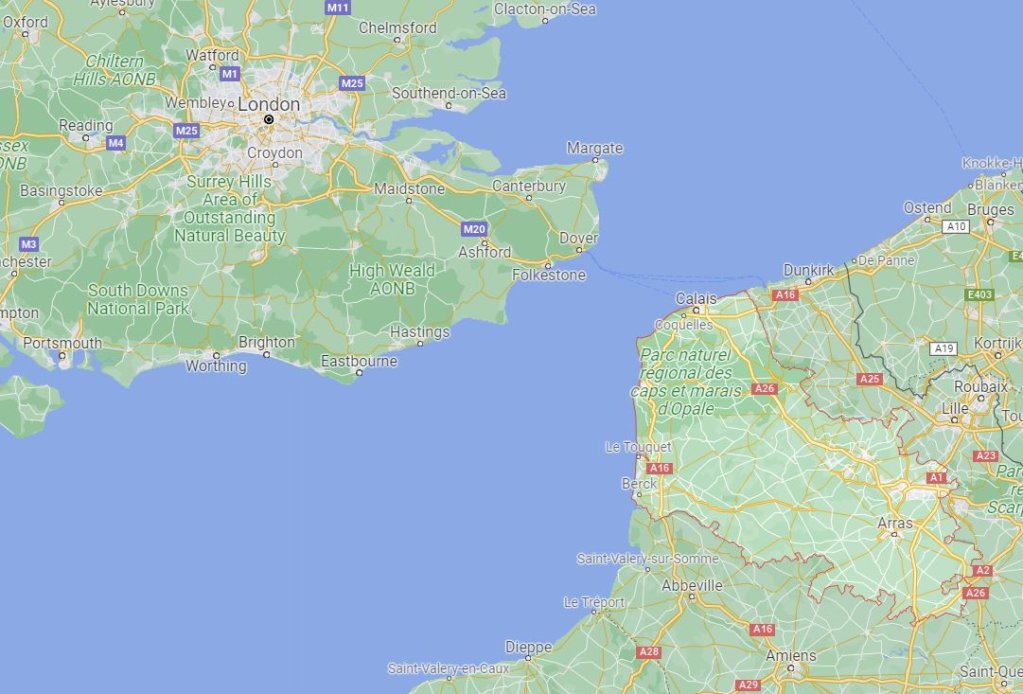
Read AlsoFrance: Migrants bear the brunt of the deadly heatwave
Thousands keep crossing the world's busiest shipping route
UK Prime Minister Keir Starmer faces growing pressure to find solutions one year into his premiership, after pledging that his government would manage to reduce the rate of arrivals.
Starmer's Labour Party ran their election campaign last year using the slogan "smash the gangs," vowing to bring an end to the business model of migrant smugglers bringing people to Britain.
But thousands of people continue to cross the English Channel from France each year, usually traveling on inflatable dinghies provisioned by people smugglers, who charge high sums for the clandestine and highly dangerous journeys.
In 2024 alone, 73 people are known to have died while trying to cross the Channel, though some human rights groups believe that number to be higher.
The English Channel is one of the busiest shipping routes in the world, and the weather can quickly turn in the narrow stretch of water, even on, what may look like from shore, a calm day. The French authorities continually warn people planning to navigate the Channel that wind speeds can be high more than 120 days of the year, and water temperatures, even in summer, can mean that immersion can result in disaster within a matter of minutes, especially when coupled with colder air temperatures and strong currents.
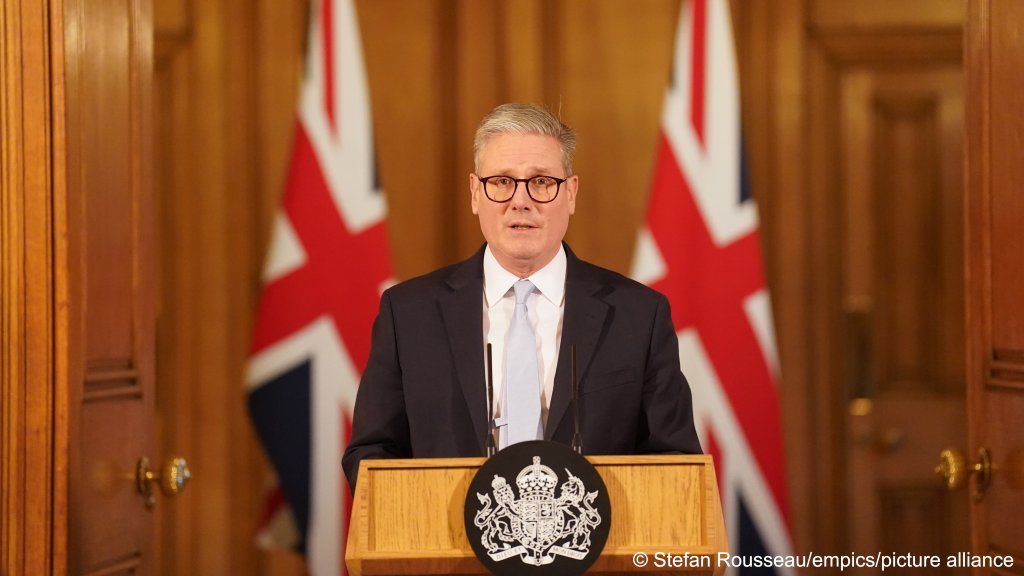
Read AlsoOver 1,000 migrants cross Channel in small boats over two days
Major political shift among UK voters in response
Meanwhile, the government's ongoing failure to bring down the number of small boat arrivals has led to a major boost in support of the Reform UK party — a far-right, anti-immigration platform headed by firebrand politician Nigel Farage, which is now leading national opinion polls.
According to a poll from last month, the Reform UK party would take 377 seats in the House of Commons, Britain's lower house of parliament if an election were held, leaving a highly fractured opposition with 273 MPs.
Farage meanwhile wrote on X that the "record" number of migrant arrivals would "only increase if we continue to give them everything when they arrive," referring to the social benefits asylum seekers in the UK receive once they lodge their application.
The issue of small boat arrivals has become a key political issue in Britain, with successive governments failing to bring down the numbers.
Read AlsoUK hosts first major international summit to tackle people smuggling, including social media firms
Britain trying to mitigate arrivals with deportations
The UK government is however also focusing on deporting people, who have no right or recourse to stay in the country.
According to government figures, more than 24,000 with no right to remain in Britain have been returned since Starmer's government first took office last July. That number was last updated at the end of March this year.
Starmer promised to bring down overall immigration to the UK, saying in one recent speech that Britain risked becoming "an island of strangers" — even though immigration numbers to the UK have remained comparable to those of other high-income countries over the past few decades, according to the Migration Observatory at the University of Oxford.
Also, while the number of asylum applications lodged in the UK has broadly doubled in the past five years to figures hovering around the mark of 90,000 new applications per year recently, the rate of both work and study related visa applications being accepted have dropped significantly since the beginning of 2024.
Read AlsoUK: Migration crackdown risks trapping victims in slavery
Starmer working on 'tit-for-tat' exchange with France
Prime Minister Starmer has widely been reported to be in ongoing negotiations with French President Emmanuel Macron to work out an agreement to bring down the number of people entering the UK using irregular means of travel — mainly small boat crossings.
According to that deal, people reaching Britain would be sent back to France in exchange for the UK accepting asylum seekers with family ties in the country.
Starmer hopes that this would have the knock-on effect of the smugglers' business model becoming null and void.
Macron is due to visit London next week, at which time further details about the plan are expected to be made public.

Read AlsoRecord Channel crossings prompts UK to urge France to speed up interception plans
France planning to stop 'taxi boats'
France meanwhile is also considering policy changes of its own to help dismantle migrant smuggling across the Channel.
Paris wants to allow officials to stop boats operating in shallow coastal waters — up to 300 meters from the coast.
Many smugglers have recently changed their tactics and now typically pick migrants up off the French coast in a bid to remain undetected; irregular migrants have to wade through waist-deep water, often under the cover of darkness, to get to what smugglers call "taxi boats."
These vessels either then begin the crossing, or in some cases, according to AFP, they ferry migrants to other boats waiting even furthr offshore.
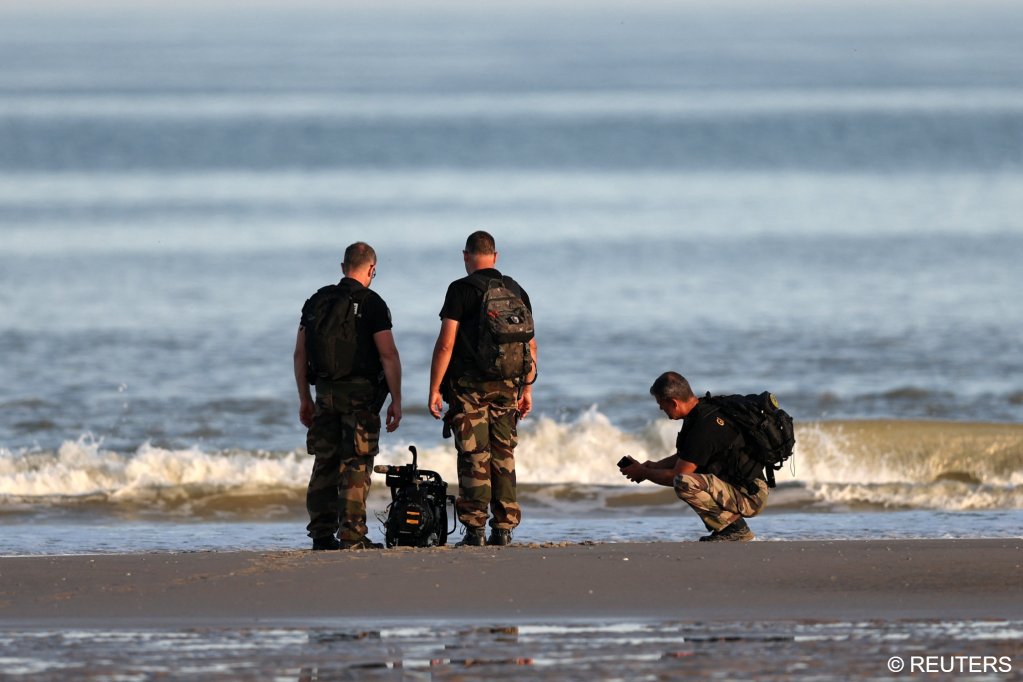
Read AlsoFrance: New tactics used by police and smugglers on the Channel beaches?
Currently, French officials are not allowed to intervene in such scenarios, when a boat is already at sea; under current operational rules, police can only intervene in cases where someone might be about to drown — or if a migrant boat becomes trapped on a sandbank.
Meanwhile, once a boat is already in the water, French police can only intervene to rescue passengers if a boat proactively asks for help.
A policy change could allow police and other officials to intervene in such scenarios; although officials seem unsure how to address the problem of inadvertently causing harm through the intervention, by for instance capsizing the boat, or causing panic and people to fall into the water. These scenarios have so far prevented the authorities from attempting to stop the boats at sea, and result in officers standing watching as the boats depart the beach.
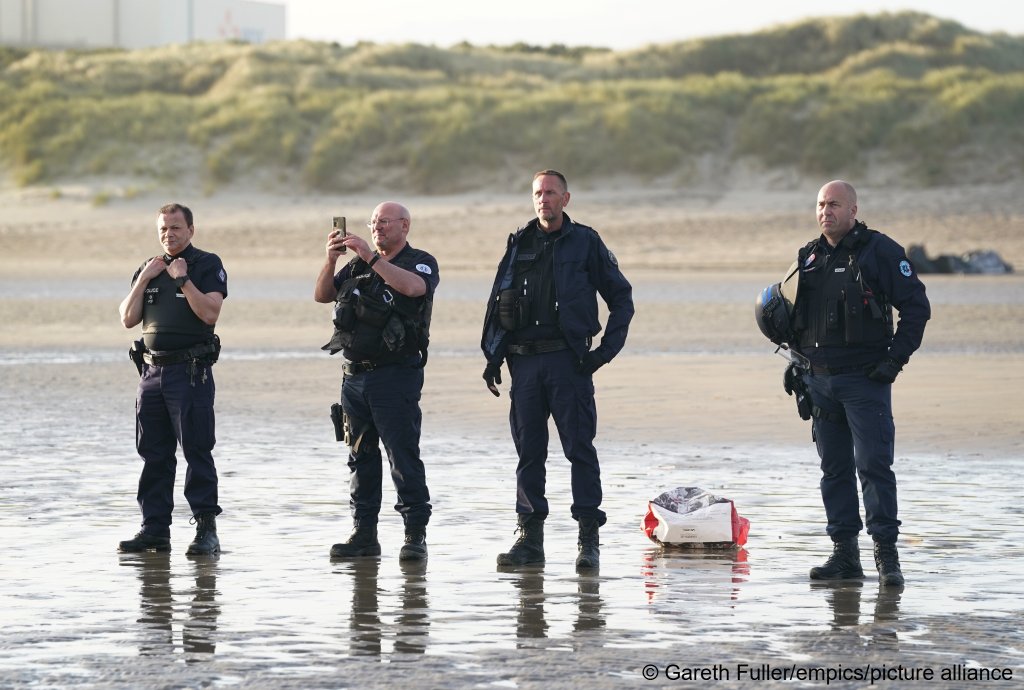
French authorities stop two thirds of small boat departures
For the moment, French authorities are trying to intervene increasingly on land to prevent migrants from reaching the small boats waiting for them, and are allowed to use tear gas, if necessary.
French forces are therefore now patrolling more than 120 kilometers of coastline in northern France, according to a report on the BBC; in fact, French authorities now claim that they're successfully managing to intercept more than two thirds of small boat departures before they reach the sea.
However, this expanded crackdown on boat departures combined with the practice of using "taxi boats" has also partly resulted in smugglers attempting to move migrants from locations further away, making the crossing of the English Channel longer — and much more perilous.
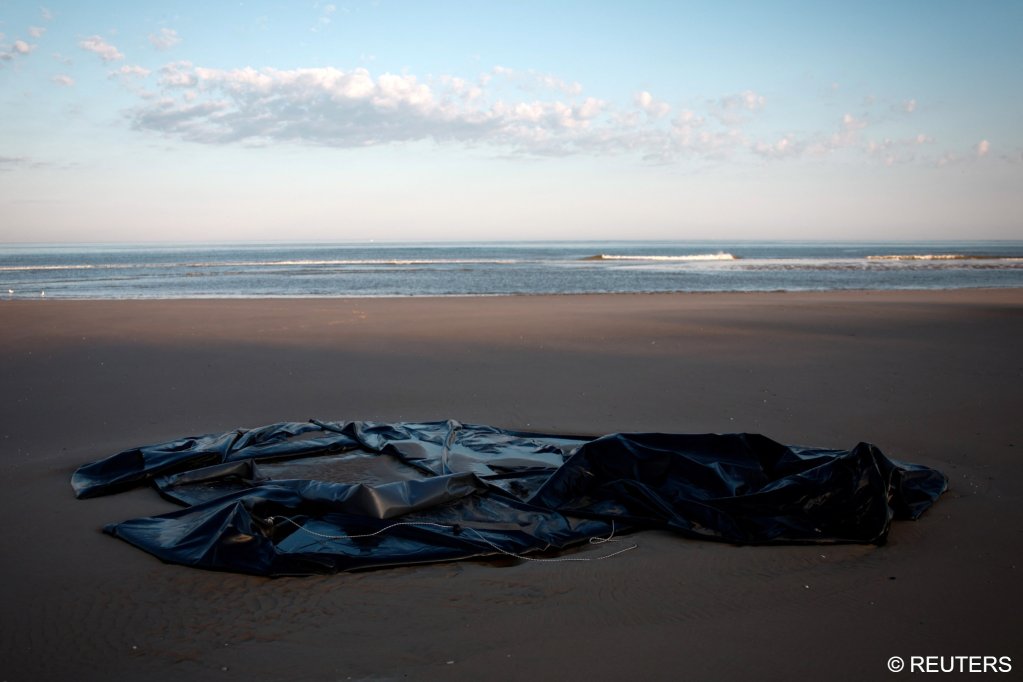
with AFP, Reuters
